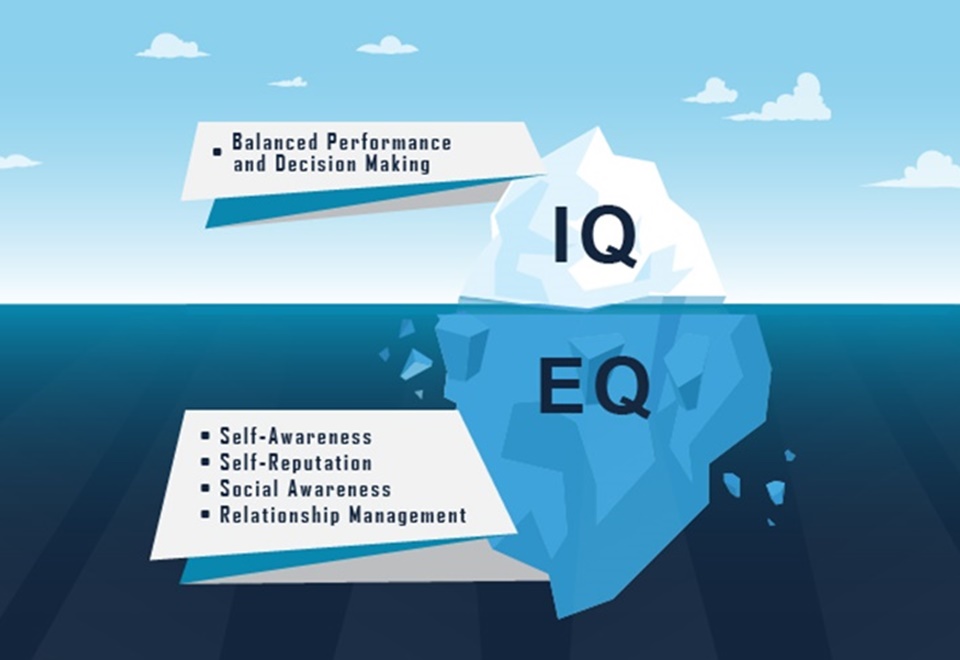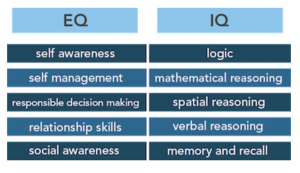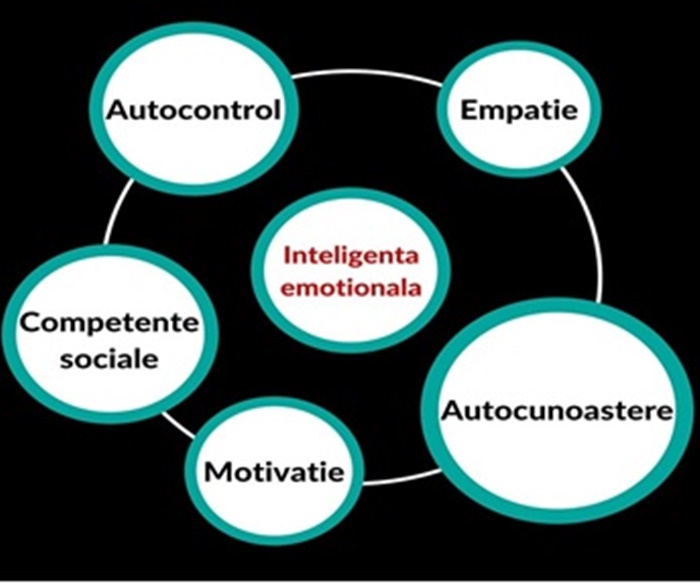
08 aug. Emotional intelligence-keep your IQ and EQ balance
Dr. Camelia Căpuşan, FLP Manager
What is emotional intelligence? In one sentence, emotional intelligence is the ability to identify, understand and manage states and feelings, both our own and others. However, this single sentence does not help us to understand the usefulness of emotional intelligence!
Traditional intelligence or a high IQ has never been enough to succeed in life The children who have obtained maximum marks in the school exams are not always the ones who have the most successful professional careers. There are a lot of people who did not attend college or did not finish twelve high school classes, but they managed to do well. Many entrepreneurs and business leaders are no smarter than us, but they succeed because they set a goal and pursue it endlessly. They are aware of their own emotions and can control them. Interpersonal motivation and skills are important components of emotional intelligence.
Think about the workplace and the people you come into contact with.
Who is the best manager?
Who is the smartest and smartest or the most charismatic, enthusiastic and trustworthy?
IQ is the coefficient that measures the innate human intelligence and CAN NOT be greatly improved throughout life. There are NO scientific explanations for situations where people with a medium or relatively low IQ have been very successful. Emotional intelligence (EQ) primarily involves self-awareness, self-discipline and empathy. It realizes the way we control our impulses and feelings. Emotional intelligence can be improved and cultivated, including in adulthood.

FOTO: medium.com
65% of men are thinking and 65% of women are affect
If we think that two out of three men are born with the left side more capable than the right and that through education men are taught to be strong, not to externalize their feelings and to have logic as a law, we have a world in which men no longer understand their emotions, cannot understand the emotions of others and cause women to say, „we do not understand men.”
If we think that two out of three women are born with the right side more developed and that, through education, they are taught to externalize their emotions, to be as communicative as possible and to „listen to their heart” we have a world in which men consider women intellectually limited and impossible to understand.
In order for a man to function fully, both hemispheres are needed because only a rational person will have difficulty understanding emotions. At the same time, reason and logic are indispensable in our evolution, but emotion dominates logic, most of the time.
Emotional intelligence (EQ) accounts for about 67% of the skills and competencies required for a leader to deliver superior performance. These skills and competencies count twice as much as the technical expertise (on the subject of the job) and IQ.
The five domains of emotional intelligence:
Knowing your own emotions (being aware of yourself, being able to recognize an emotion while living it)
Managing your own emotions (you can manage your emotions in a constructive way)
Motivating your own person (managing your emotions to reach a goal)
Recognizing the emotions of others (empathy and social awareness)
Relationship management (social skills and ability to manage the emotions of others)
Neuroanatomy of emotions
Imagine your hypothalamus as a small heart pumping throughout the human body not blood, but emotions. Imagine a mini-factory placed in the human brain, which has all the necessary materials available to build any kind of emotion and send that emotion to every cell in your body.
An emotion built into the hypothalamus is called peptide neurosecretion. This can be of release and inhibition.
When an external event generates a reason for us to feel a certain emotion, in the hypothalamus, almost instantly, the neuropeptides that match that emotion are assembled. Then, as an avalanche, these neuropeptides circulate through the blood to every cell of our body.
When cells are bombarded with neuropeptides, they become much more insensitive to vitamins and proteins and have many receptors that can capture only the chemical they were used to.
In the case of addictions, when we generate the same response from the brain to the cells, the cells will get used to the same type of neuropeptides, which come most often.
„At birth, any human being who possesses a normal IQ (at least 90) treasures a creative potential, at least minimal, for a certain field” (Psychology of the Ages, Anca Munteanu).
Dr. Camelia Căpuşan, FLP Manager

